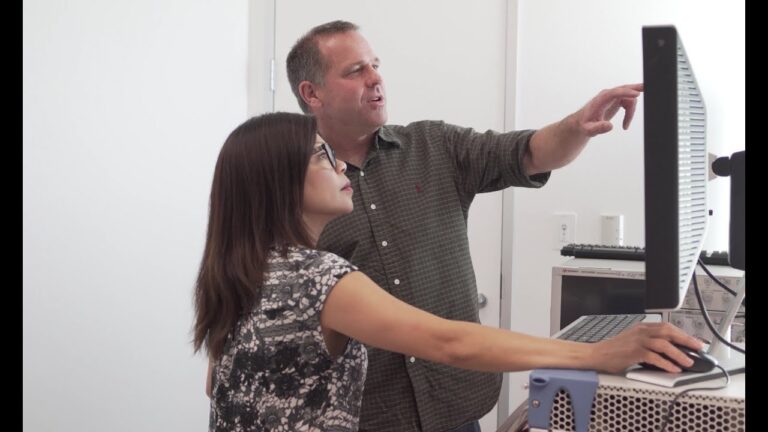Technical Writer Job Description and Salary: Unlock Your Writing Potential
Technical Writer Job Description is a comprehensive guide that outlines the responsibilities and requirements of a Technical Writer. This role involves creating and editing technical documentation, such as user manuals, guides, and online help systems. Technical Writers collaborate with subject matter experts to gather information and ensure the accuracy and clarity of the content. They are also responsible for organizing and structuring the information in a user-friendly manner.
In terms of Technical Writer Salary, it varies depending on factors such as experience, location, and industry. On average, a Technical Writer can expect to earn a competitive salary. According to recent data, the median annual salary for Technical Writers is around $72,850. However, entry-level positions may start at a lower salary, while highly experienced professionals can earn significantly more.
A career as a Technical Writer offers excellent growth opportunities, as companies across various industries recognize the importance of clear and concise technical documentation. With the increasing demand for technology-driven products and services, the need for skilled Technical Writers continues to rise. If you have strong writing skills, attention to detail, and a passion for translating complex information into accessible content, pursuing a career as a Technical Writer can be a rewarding choice.

Technical Writer Job Description Template
Technical Writer Job Description
A technical writer is a professional who creates and maintains technical documentation. They play a crucial role in ensuring that complex information is communicated effectively to a target audience. Technical writers possess excellent writing, research, and communication skills.
The primary responsibility of a technical writer is to produce clear, concise, and accurate documentation. This includes user manuals, online help guides, installation guides, and troubleshooting documents. They are responsible for gathering information from subject matter experts and transforming it into easily understandable content.
Attention to detail is crucial for a technical writer. They must carefully review and edit their work to eliminate errors and inconsistencies. They also need to ensure that the information is organized logically, making it easy for users to find and understand.
Another important skill for a technical writer is adaptability. They often work on projects involving new technologies or complex systems. They must quickly grasp technical concepts and translate them into user-friendly language. Additionally, they must be able to adapt their writing style to suit different types of documents and target audiences.
Technical writers frequently collaborate with various teams, including software developers, engineers, and project managers. They must be able to work effectively in a team environment and communicate complex ideas clearly to different stakeholders.
In conclusion, a technical writer is a vital member of any organization that produces technical documentation. Their ability to create clear and concise content, attention to detail, and adaptability are essential for ensuring the successful communication of complex information to users.
Technical Writer Responsibilities
Technical Writer Requirements
How Much Does A Technical Writer Make?
Technical Writer Salary
| Job Level | Salary Range |
|---|---|
| Entry Level | $45,000 – $60,000 |
| Mid Level | $60,000 – $80,000 |
| Senior Level | $80,000 – $100,000 |
A Technical Writer’s salary varies depending on their level of experience. Entry-level Technical Writers can expect to earn between $45,000 and $60,000 per year. Mid-level Technical Writers typically earn between $60,000 and $80,000 annually. Senior-level Technical Writers, with extensive experience and expertise, can earn salaries ranging from $80,000 to $100,000 per year. These figures are approximate and can vary based on factors such as location, industry, and company size.
Technical Writer Salaries by Country
Top Paying Countries for Technical Writer
| Country | Average Salary (USD) |
|---|---|
| United States | $75,000 |
| Switzerland | $71,000 |
| Australia | $65,000 |
| Germany | $58,000 |
| Canada | $56,000 |
Technical writers in the United States earn the highest average salary of $75,000 per year. Switzerland follows closely with an average salary of $71,000. Australia, Germany, and Canada also offer attractive salaries for technical writers, ranging from $56,000 to $65,000 per year. These countries provide a favorable environment for technical writers to excel in their careers and earn competitive salaries. However, it’s important to note that salaries may vary based on factors such as experience, industry, and location within each country.
A video on the topic Technical Writer
Video Source : Microsoft Developer
Interview Questions for Technical Writer
1. What is the role of a Technical Writer?
A Technical Writer is responsible for creating and maintaining technical documentation, such as user manuals, instruction guides, and online help systems. They gather information from subject matter experts and translate complex technical concepts into easy-to-understand language for the intended audience.
2. What skills are essential for a Technical Writer?
Essential skills for a Technical Writer include excellent writing and editing skills, proficiency in technical writing tools, such as Adobe FrameMaker or MadCap Flare, knowledge of document management systems, strong attention to detail, and the ability to communicate effectively with subject matter experts.
3. How do you approach the process of creating technical documentation?
When creating technical documentation, I start by understanding the target audience and their level of technical expertise. I then collaborate with subject matter experts to gather necessary information and conduct research as needed. Next, I organize the content in a logical and user-friendly manner and use appropriate visuals, such as diagrams or screenshots, to enhance understanding. Finally, I review and revise the documentation to ensure accuracy and clarity.
4. How do you handle working on multiple projects with tight deadlines?
To handle multiple projects with tight deadlines, I prioritize tasks based on urgency and importance. I create a schedule or timeline to ensure I allocate sufficient time for each project. I also communicate with stakeholders to manage expectations and provide regular updates on progress. If necessary, I may delegate tasks or seek assistance to meet the deadlines without compromising the quality of the documentation.
5. How do you ensure the accuracy of technical documentation?
To ensure the accuracy of technical documentation, I thoroughly research the subject matter and verify information with subject matter experts. I follow established style guides and documentation standards to maintain consistency. I also review and revise the documentation multiple times, seeking feedback from other team members or stakeholders, if possible. Additionally, I perform user testing or usability testing to identify any areas of confusion or potential errors.
6. How do you handle feedback or suggestions from subject matter experts?
When receiving feedback or suggestions from subject matter experts, I approach it with an open mind and a willingness to learn. I carefully consider their input and evaluate if it aligns with the goals and requirements of the documentation. If the feedback is valid and improves the quality of the documentation, I make necessary revisions. However, if there are conflicting opinions, I discuss the concerns with the stakeholders to reach a consensus.
7. Can you explain your experience with using documentation tools?
Throughout my career as a Technical Writer, I have gained experience in using various documentation tools, such as Adobe FrameMaker, MadCap Flare, Microsoft Word, and Confluence. I am proficient in creating and formatting content, managing version control, generating PDF or HTML outputs, and collaborating with team members using these tools. I am also quick to learn new tools and adapt to changing technologies in the field of technical writing.
8. How do you ensure the accessibility of technical documentation?
To ensure the accessibility of technical documentation, I follow accessibility guidelines, such as WCAG (Web Content Accessibility Guidelines). I use appropriate heading structure, alternative text for images, and clear and concise language. I also consider different learning styles and provide multiple formats, such as HTML, PDF, or plain text, to accommodate diverse user needs. Additionally, I conduct usability testing with individuals with disabilities to identify and address any barriers.
9. How do you handle translating technical documentation for international audiences?
When translating technical documentation for international audiences, I collaborate with professional translators who have expertise in the target language and technical domain. I provide them with context and guidelines to ensure accurate translation. I also consider cultural differences and adapt the content accordingly, while maintaining the technical accuracy. Finally, I conduct reviews or user testing with native speakers of the target language to ensure clarity and usability.
10. Can you describe a challenging project you worked on as a Technical Writer?
One challenging project I worked on was creating documentation for a complex software product with a fast-paced development cycle. The challenge was keeping up with the frequent changes and updates while ensuring the documentation was accurate and up to date. To overcome this challenge, I established a close relationship with the development team and attended regular meetings to stay informed about the changes. I also used version control systems to track and manage updates efficiently. Additionally, I created a robust feedback loop with users to identify any gaps or inconsistencies and addressed them promptly.






